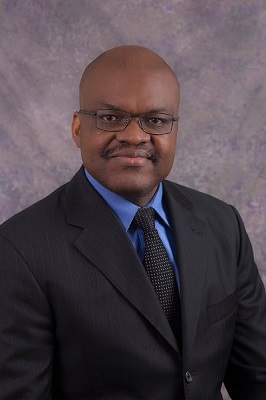Georges Tsafack is the director of the new doctor of business administration program at the University of Rhode Island’s College of Business.
Launched this fall, the three-year program is geared toward executives who completed an MBA and have extensive experience working in a leadership role. Tsafack talks with Providence Business News about the program and what networking opportunities it will offer.
PBN: What has URI heard from area circles that there was a growing need for this program?
TSAFACK: Observing a growing number of DBA programs in other parts of the country and the world, URI surveyed some business executives from area circles who showed a great interest in a program that will further their skills toward evidence-based management.
Hanover Research conducted an assessment of the demand for executive doctorate in business administration degree programs with a special focus on New England and found an increasing trend. Their report, which includes an examination of student and labor market demand, and an analysis of competitor programs, puts forward a growing need for a blended DBA program to serve industry executives in New England and beyond. This is coupled with demand for a program that offers value and the flexibility to continue working while completing the degree.
PBN: How will this program differ from traditional Ph.D. programs at URI?
TSAFACK: Unlike Ph.D. programs that admit applicants directly from master’s or even undergraduate programs and are full-time students, the DBA program is designed for practitioner-scholars with a master’s degree who leverage their intensive work experience and, often, their access to unique industry data as they pursue their dissertations part-time for three years.
After earning their DBAs, practitioner-scholars typically stay in industry, and may leverage their evidence-based management skills to advance their career, engage with consulting opportunities, and/or to pursue clinical faculty opportunities that draw from their work experience. The DBA is a terminal degree in business that opens new horizons to graduates.
PBN: What do you hope this new program will help executives with?
TSAFACK: Business executives often face challenges regarding their decision-making process. They most likely recognize that a good decision should be grounded in evidence-based research that addresses some specific questions. The problem is that these types of research may not have been done, or if they were done, executives may not be aware of them.
This new DBA program at the University of Rhode Island College of Business will not only immerse business executives into relevant research but also train them to perform such research and be able to solve their own challenges for a better decision-making outcome. The new program will also encourage and support executives to share their research and learn from others through participation in seminars and conferences.
Ultimately, the program will help business executives to disseminate their research results through publication in large audience practitioners’ reviews, as well as other scientific journals. Doing so will help them get more recognition not only as leaders but also as scholars in their industry.
PBN: How is the program structured so that students can balance their academic work while leading their respective operations?
TSAFACK: The DBA program is fundamentally designed for executives who are working. That is why the program, while having some face-to-face components, is mostly online. There are also some synchronous activities online to allow live interactions between participants, but a larger part of the work is done asynchronously online in a flexible self-paced format. This unique blended learning model, which meets the rigorous demands of working executives, is the only one of its kind in New England.
PBN: Will there also be networking opportunities for students?
TSAFACK: Regardless of how successful our students are, they always need to extend their network. That is why residencies will offer invaluable opportunities to meet and engage in rich conversations not only with fellow classmates but also with inspiring leaders who will be invited to participate (with some of them serving as keynote speakers during various events organized for the program).
The connections made during this time together will create a powerful network the students can draw upon for ideas, inspiration and advice long after the program ends.
James Bessette is the PBN special projects editor, and also covers the nonprofit and education sectors. You may reach him at Bessette@PBN.com. You may also follow him on Twitter at @James_Bessette.











